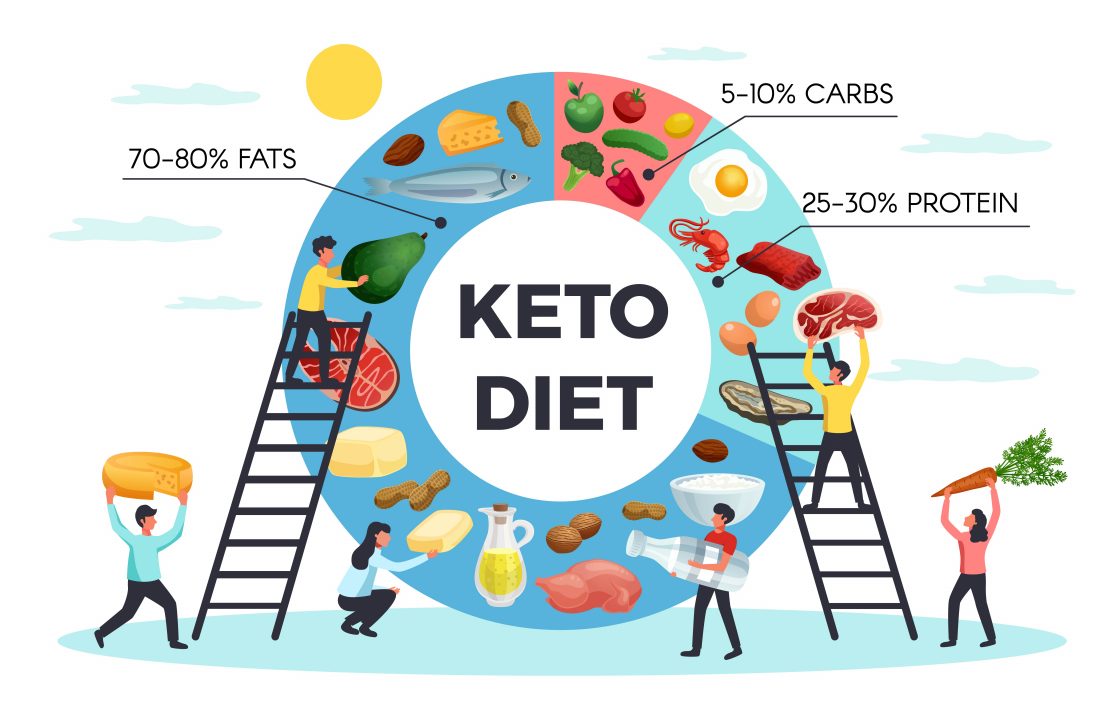The ketogenic diet is a nutritional approach consisting of high fat and adequate protein content. However, insufficient levels of carbohydrates for metabolic needs (<20 g /d−1 or 5% of total daily energy intake) thus forcing the body primarily to use fat as a fuel source. The original ketogenic diet was designed as a 4:1 lipid: nonlipid ratio, with 80% of daily energy intake from fat, 15% protein, and 5% carbohydrate.
The use of the ketogenic diet in sports is still a twilight zone… “the middle ground between light and shadow, between science and superstition.”
Some encouraging data suggest a beneficial role of the ketogenic diet in certain sports, including those with weight categories and aesthetic and endurance sports. However, trainers, sports physicians, and dieticians must be aware of the strengths and limitations of this nutritional strategy.
Evidence suggests that athletes can use ketogenic diets as a weight-loss strategy without impairing strength performance, but more research is needed.

Regarding endurance sports, some interesting preliminary findings suggest that the ketogenic diet may be an instrument to improve fat metabolism and oxidation with improved performance.
Regarding weight category sports, it should be remembered that:
- Rapid weight loss should, in principle, be avoided.
- Long-term planning and gradual bodyweight reduction are recommended.
- A ketogenic diet may be a viable route if necessary. However, at least 2 wk is necessary to avoid any negative effects on performance.

Regarding aesthetic sports such as bodybuilding:
- As noted previously, rapid weight loss should be avoided.
- It is very difficult, maybe impossible, to gain muscle mass during a ketogenic diet.
- A ketogenic diet may be used during the final days before a competition, bearing in mind that it causes a glycogen depletion (i.e., reducing muscle volume and vascularization).

References:
https://pubmed.ncbi.nlm.nih.gov/25906427/




